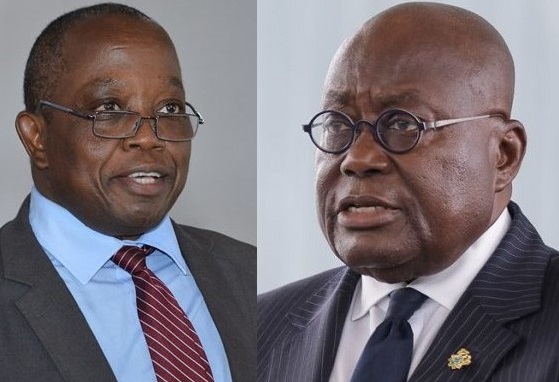By: Waana-ang Martin, LLB Candidate,Kwame Nkrumah University of Science and Technology The Constitutional Independence of The Office of the Auditor-General and the President’s Disciplinary Control Over The Office It may be recalled that in the second letter from the office of the president to the Auditor-General, dated 3 July, 2020, it was stated that by virtue of...
Category: Employment Law
The Office Of The Auditor General And Leave Regime In Ghana: A Critique Of The President’s Directive Compelling Auditor-General To Proceed On Leave (1)
By: Waana-ang Martin, LLB Candidate, Kwame Nkrumah University of Science and Technology 1.Introduction The recent attempt by the President of the Republic of Ghana to compel the Auditor-General to proceed on an accumulated leave and the growing trend in the exercise of such powers on the leadership of other constitutionally established independent bodies have splintered public opinions. Whilst many Constitutional law experts have attempted to...
To Cash-Out On Leave Days or Not: A Review of Samuel M. K. Adrah vs. Electricity Company of Ghana
Introduction In Samuel M. K. Adrah vs. Electricity Company of Ghana, Ghana’s Court of Appeal laid down the position of the law regarding commuting accrued leave of an employee to cash. It held that by section 31 of the Labour Act 2003 (Act 657), payment of cash in place of leave is void, unless saved...
Accumulated Leave in Ghana – Does the Law Frown on It?
By Ernest Osei-Afful, Esq.[1] Leave or holidays are part of the compensation package or benefits to which all workers are entitled. Section 20 of the Labour Act, 2003 (Act 651) provides that every worker shall be entitled to leave (minimum of fifteen days per full year). The number of leave days a worker is entitled to, the...
Constructive Dismissal: What It Actually Means Under The Ghanaian Law
Introduction: Employment is regarded as the most fundamental aspect of a person’s life because the provision of one’s basic needs depends on it. Generally, a contract of employment legally binds an employer and employee and it is expected that both parties go by the terms of the contract. Many employers sometimes go contrary to the...
2019 In Employment Law
This piece looks back at some of the key employment law decisions given by Ghana’s Supreme Court in 2019. When does redundancy/severance pay arise? The Supreme Court in Atuahene v Ghana Cocoa Marketing Board[1] set out the circumstances under which a redundancy or severance pay becomes payable under Ghanaian law. The main issue in this case was...
Overtime work, Its Remuneration, and Its Tax Implication
1. Introduction Overtime is defined as “time worked in addition to one’s normal working hours.[i]” The International Labour Organisation (the “ILO”), whose mandate is to promote rights at work, enhance social protection, and strengthen dialogue on work-related issues; by setting international labour standards, developing policies and devising programmes to promote decent work; has set out some...
Ending Employment Relationships Under Ghanaian Law: Basic Terms (2)
The first part of this piece discussed in general terms the differences between termination and dismissals under the Ghanaian law. The piece went on to look at the differences between a dismissal (simpliciter) and summary dismissal. The author also considered the differences between unlawful dismissal and wrongful dismissal. The second part of this article examines...
Ending Employment Relationships Under Ghanaian Law: Basic Terms (1)
In virtually every employment case law, you are likely to find the following words and phrases in use: dismissal, summary dismissal, wrongful dismissal, wrongful termination, and unlawful termination. You will find litigants arguing in one form or the other that they have been dismissed, summarily dismissed, wrongfully dismissed, wrongfully terminated, or unlawfully terminated. This often...
Refresher On Unfair Termination and Unlawful/Wrongful Termination
The recent Supreme Court decision of Charles Afran & Ors v SG-SSB Limited[1] has thrown into sharp focus the need to bear in mind the distinction between “unfair termination” and “unlawful/wrongful termination” under Ghanaian law. The Plaintiff in this case was dismissed for failing to verify some cheques. The Plaintiff’s failure led the employer to...










